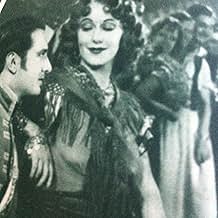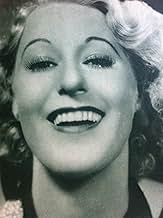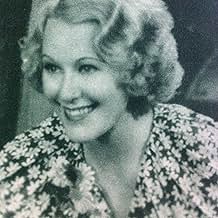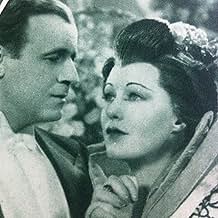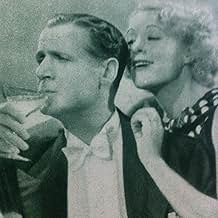Ajouter une intrigue dans votre langueMary, an aspiring opera singer, trains under famed maestro Guilio Monterverdi. Their professional relationship turns romantic amid hard work and clashes, but jealousy and misunderstandings h... Tout lireMary, an aspiring opera singer, trains under famed maestro Guilio Monterverdi. Their professional relationship turns romantic amid hard work and clashes, but jealousy and misunderstandings hinder their love's expression.Mary, an aspiring opera singer, trains under famed maestro Guilio Monterverdi. Their professional relationship turns romantic amid hard work and clashes, but jealousy and misunderstandings hinder their love's expression.
- Réalisation
- Scénario
- Casting principal
- Récompensé par 2 Oscars
- 5 victoires et 4 nominations au total
- Galuppi
- (as Andres De Segurola)
- Bartender
- (non crédité)
- Undetermined Role
- (non crédité)
- Children's Music Teacher
- (non crédité)
- Radio Judge
- (non crédité)
- Cafe Owner
- (non crédité)
- Minor Role
- (non crédité)
- Stage Manager
- (non crédité)
- Vegetable Man
- (non crédité)
- Undetermined Role
- (non crédité)
Avis à la une
The film is your usual backstage story only with an operatic twist. Moore is an aspiring opera singer and as the picture opens she's singing the title tune which became a big hit at a radio station contest. The prize is a scholarship to study in Italy. Believe it or not, Grace Moore doesn't win, but she's determined and with her meager savings she goes to Italy and studies to become a great opera diva.
Along the way she gets involved with two men, voice teacher Tullio Carminati and American expatriate Lyle Talbot. Carminati also has a witch of an ex-pupil/girlfriend he's trying to dump, deliciously played by Mona Barrie.
But this is Miss Grace Moore's film and that's how she is billed here and would be for the rest of her film career. Grace Moore, who's all but forgotten today except for devoted opera fans, conquered four areas of entertainment; recordings, stage, grand opera, and finally film.
She was the best selling classical artist of her day. On Broadway in Irving Berlin's Music Box Revues she introduced several of his standards, most importantly the song Always. Her buxom beauty (she was a full-figured gal before Jane Russell made bra commercials) helped popularize opera for the masses. And after failing with MGM she finally did become a film star with this film.
Moore set off a couple of copycats in Hollywood with her success. 20th Century Fox signed Lily Pons and Paramount inked Gladys Swarthout to film contracts. Both these ladies fine singers that they were, never achieved even the limited success Moore had. The problem with signing opera singers is that you have to have them singing opera to show off their talent. That has a limited appeal and Moore too was finished in Hollywood in four years.
The film is curiously autobiographical in the same way Mario Lanza's That Midnight Kiss is. Moore plays a small town girl who wants to sing opera, just like the real Grace Moore. How often will the public go to see an opera singer, even a great one, play an opera singer? Moore played versions of Mary Barrett for the rest of her film career at Columbia.
Still the original is a tuneful treat. In addition to the title song and several arias, Moore also sings Ciribiribin which was a favorite song always requested at concerts and even at encores of her operatic performances.
This delightful musical was a huge success - the operatic selections are wonderful, as is the title song, which was a big recording success for Moore. Moore's voice is absolutely beautiful. Female singers were trained a little differently in those days, often backing off of their high notes. Moore does a little of that but has a glorious extension above high C. Her best singing is in her rendition of "One Night of Love"; unfortunately, the opera selections sung by "Maria Barrett" were vocally wrong for this charming lyric coloratura. Moore herself has a nice warm presence on screen, though I read once that she had an unfortunate resemblance to the comedienne Joan Davis. From certain angles, that is true, but she was photographed carefully and looks lovely throughout the movie, slender and beautiful. Due to marrying a Frenchman and living part-time in France, working at her opera career, concertizing and eventually entertaining the troops, Moore only made 9 films. She died in a plane crash in 1947 at 49 years of age.
The opera selections were, as always, on the strange side. Only in Hollywood would a lyric coloratura with a weak lower register and no chest voice sing Carmen! From the sound, female singers also were not taught to do a mix on the lower notes. The role for Moore in Carmen is Micaela, which is indeed the role she played. Surprisingly, she also in real life did Tosca and Butterfly, which must have been total disasters. Her Butterfly, the finale of the film, is not good, particularly at the end. Her voice just isn't powerful enough, nor should it be - she wasn't a spinto or dramatic soprano or even a big lyric! The voice suffers, occasionally falling out of placement in the middle range. "Sempre Libera" was a series of wrong and skipped notes. And she scooped like crazy. This is nitpicking, but I would have preferred to hear some "La Boheme," Mimi being her Metropolitan Opera debut, or the Jewel Song from Faust, or Micaela's aria, all of which suited her voice perfectly, and all of which she sang during her career.
If you love opera, you'll love "One Night of Love" for its glorious music and the elegantly-voiced Grace Moore.
Exuberantly directed by Victor Schertzinger with some lavish sets, "One Night of Love" takes us into the enchanting world of opera, with all its joys and pleasures, difficulties and heartbreaks. Moore previously made two MGM movies, both of which were commercial disappointments. Then in 1934, Columbia Pictures gave the famed opera diva another chance; to their surprise, it scored a huge success and was ultimately nominated for some Oscars.
The film genially mixes popular ballads and grand opera. Moore is very beautiful and is endowed with a strong, haunting, and remarkably talented opera voice. In this film, Moore is aided by Tullio Carminati who plays her mentor and romantic interest. Her final performance at the Metropolitan Grand Opera packs a stirring punch.
Le saviez-vous
- AnecdotesThis was the first film to win an Academy Award for Best Music Score (for Louis Silvers) as 1934 was the first year that an Oscar for this category was introduced.
- Citations
Mary Barrett: I have $500 of my own. I'm taking that money and I'm going to Italy to study!
Mr. Barrett - Mary's Father: Italy?
Mary Barrett: Yes!
Mrs. Barrett - Mary's Mother: Why, that place is full of Italians!
- ConnexionsFeatured in The Soundman (1950)
- Bandes originalesOne Night of Love
(1934) (uncredited)
Music by Victor Schertzinger
Lyrics by Gus Kahn
Sung by Grace Moore at a radio contest
Partially sung a cappella by Tullio Carminati twice
Played often in the score
Meilleurs choix
- How long is One Night of Love?Alimenté par Alexa
Détails
- Durée1 heure 24 minutes
- Couleur
- Rapport de forme
- 1.37 : 1
Contribuer à cette page


